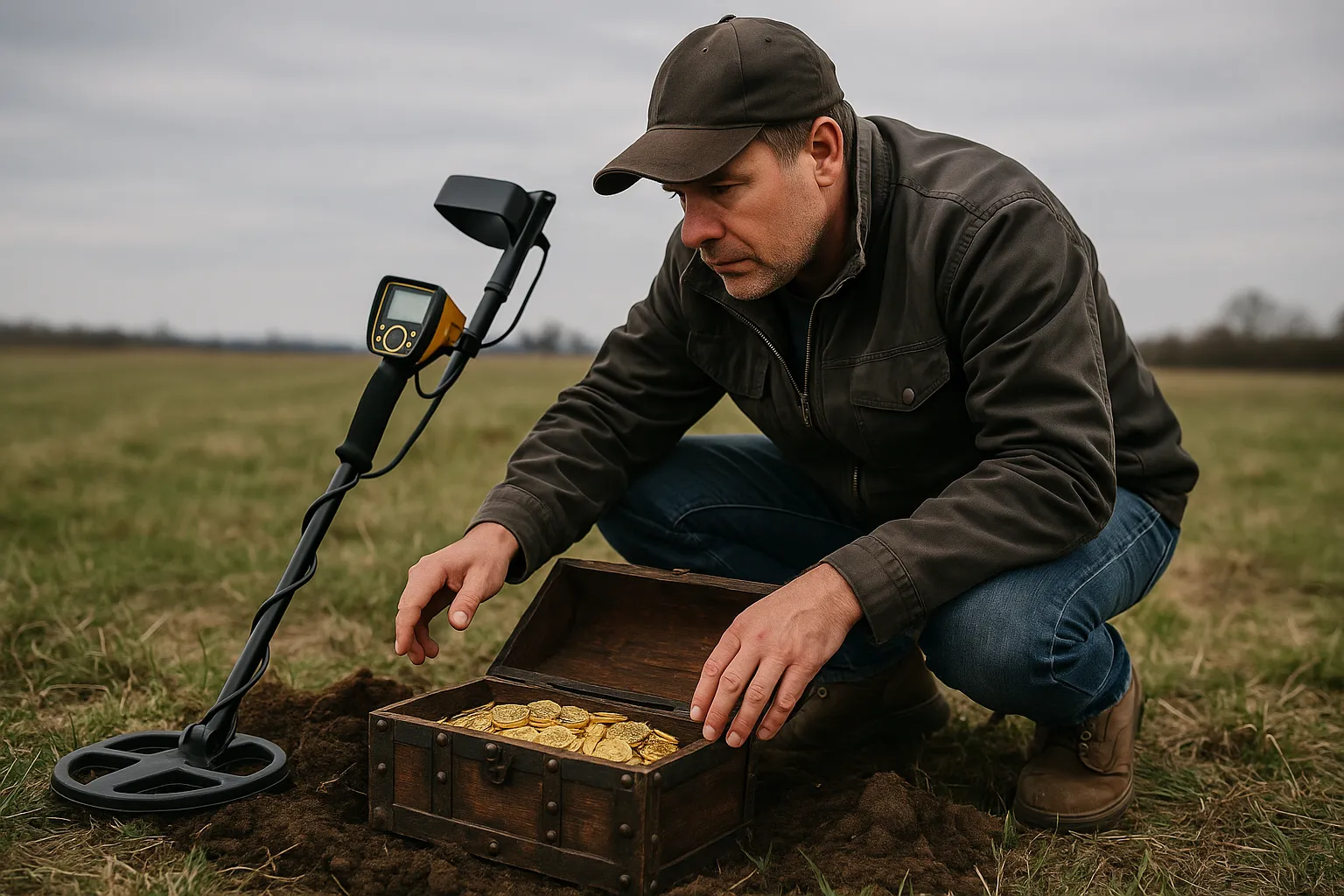The allure of finding treasure has fascinated people for centuries. From tales of hidden gold in deserts to stories of lost artifacts buried under ancient ruins, the dream of unearthing something valuable is as old as humanity itself. Today, modern technology has made this pursuit more accessible with the rise of gold detector machines. But the key question remains: are these machines genuinely effective for finding treasure, or are they just tools that feed into our adventurous imagination?
Understanding How Gold Detectors Work
Gold detectors are a specialized type of metal detector designed specifically to identify gold deposits underground. Unlike general-purpose detectors that identify a wide range of metals, gold detectors use higher frequencies to distinguish gold from other metals. They emit electromagnetic signals into the ground, and when these signals encounter a metal object, a response is triggered, which the machine translates into a detectable signal.
While their design is tailored to improve accuracy for gold detection, real-world conditions can complicate the process. The ground is often filled with minerals that can interfere with signals, making it difficult to separate actual gold from surrounding debris. To address this, modern detectors are equipped with ground balance features, advanced sensors, and improved discrimination settings, allowing users to refine results and reduce false signals.
If you are interested in exploring the latest models, you can check out advanced gold detector options that showcase how technology is pushing the boundaries of treasure hunting today.
Effectiveness in Real Treasure Hunting
The effectiveness of a gold detector machine largely depends on the context in which it is used. In gold-rich regions, such as deserts or riverbeds, these machines have proven incredibly valuable for prospectors. Small gold nuggets, flakes, and even larger deposits have been successfully discovered thanks to advancements in sensitivity and depth detection.
For hobbyists, gold detectors often uncover smaller pieces of gold that would otherwise be missed by the naked eye. Professional prospectors, on the other hand, rely on these machines to guide them toward promising locations before committing to large-scale excavation or mining. The key advantage is that they save time, effort, and resources by narrowing down search areas with scientific precision.
Challenges and Limitations
Despite their usefulness, gold detectors are not foolproof. The presence of highly mineralized soil can create interference, leading to misleading signals. Additionally, while modern detectors can detect gold at impressive depths, there is still a limit to how deep they can go. Treasure buried several meters underground may remain undetectable, requiring other methods to locate.
Another limitation is that detectors cannot distinguish between different types of metals with complete certainty. While advanced models offer better discrimination, users may still dig up trash items such as bottle caps, nails, or scrap metal along the way. This is why patience and persistence are crucial traits for anyone serious about treasure hunting.
Real-World Applications
Gold detector machines are not just used for hobbyist treasure hunts. They also play a role in professional fields such as archaeology, geology, and mining. Archaeologists sometimes use detectors to locate metal artifacts in excavation sites, while geologists may use them to identify potential mineral-rich zones.
For small-scale miners, particularly in regions where gold panning and artisanal mining are common, detectors are vital tools for identifying new opportunities. This practical application demonstrates that their effectiveness goes beyond casual treasure hunting and extends into industries that rely on precise, efficient detection.
Tips for Maximizing Success
To make the most of a gold detector machine, users should focus on several best practices. First, choosing the right detector for the terrain is essential. Some detectors are better suited for shallow areas, while others are designed to penetrate deeper ground layers. Second, learning to adjust ground balance and discrimination settings helps reduce false signals from minerals. Finally, patience and systematic scanning methods increase the chances of success, turning random exploration into a strategic search.
Final Thoughts
So, are gold detector machines really effective for finding treasure? The answer is yes, but with important caveats. They are highly effective when used in the right conditions, by individuals who understand how to operate them properly. They can uncover nuggets, flakes, and artifacts that would otherwise remain hidden, making them invaluable tools for both hobbyists and professionals.
However, effectiveness also depends on realistic expectations. Not every scan will reveal treasure, and success often requires persistence and knowledge of the landscape. In many ways, the journey itself—exploring, learning, and experiencing the thrill of discovery—is just as rewarding as the treasure found.






















